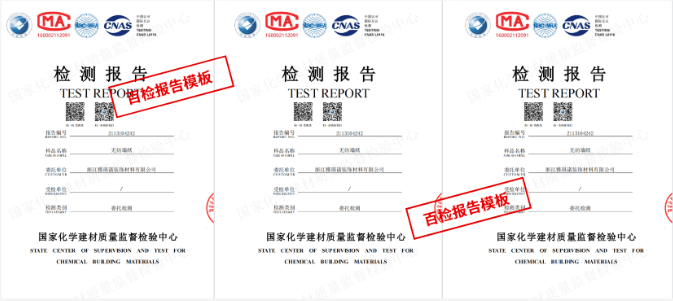
本文主要列举了关于太阳能热水系统的相关检测方法,检测方法仅供参考,如果您想针对自己的样品定制试验方案,可以咨询我们。
1. Heat Pump Hot Water System: This system uses a heat pump to extract heat from the surrounding air and transfer it to the water, providing hot water for various applications. The heat pump technology allows for high energy efficiency and reduced electricity consumption.
2. Solar Thermal Hot Water System: This system utilizes solar panels to absorb sunlight and convert it into heat energy, which is then transferred to the water. It is a sustainable and environmentally friendly way to generate hot water.
3. Direct Hot Water System: In this system, water is heated directly using energy sources such as gas or electricity. It is a common and straightforward method of obtaining hot water.
4. Indirect Hot Water System: The indirect system involves heating water through a separate heat exchanger, usually connected to a boiler or a heater. This setup allows for better control and efficiency in heating the water.
5. Thermosiphon Hot Water System: This passive system uses the natural convection process to circulate water between the solar collector and the storage tank, providing hot water. It does not require any additional pumps or electricity to function.
6. Batch Hot Water System: Also known as "ICS" (Integrated Collector Storage), this system consists of a tank that directly heats the water by absorbing solar energy. It is simple and cost-effective, suitable for regions with moderate temperature levels.
7. Evacuated Tube Hot Water System: This system utilizes a series of vacuum-sealed glass tubes that absorb solar energy and transfer it to the water. It has better efficiency compared to flat-plate collectors, especially in areas with colder climates.
8. Flat-Plate Collector Hot Water System: A flat-plate collector is a solar panel that absorbs solar energy and uses it to heat water. It is a common and widely used technology for solar hot water systems.
9. On-Demand Hot Water System: This system, also known as a tankless or instantaneous water heater, heats water only when needed, providing continuous hot water without the need for a storage tank.
10. Heat Recovery Hot Water System: By utilizing waste heat from various sources, such as HVAC systems or industrial processes, this system can recover energy and use it to heat water. It is an efficient way to reduce energy waste and generate hot water simultaneously.
11. Geothermal Hot Water System: Geothermal heat pumps utilize the constant temperature of the ground to heat water. This system is highly efficient and environmentally friendly, utilizing renewable geothermal energy.
12. Desuperheater Hot Water System: As a part of geothermal heat pump systems or air conditioning units, a desuperheater can extract excess heat from the cooling process and use it to heat water, providing a supplementary hot water source.
13. Solar PV and Immersion Heater Hot Water System: Solar PV panels generate electricity, which can be used to power an immersion heater, heating the water. This system allows for the utilization of both solar and electrical energy.
14. Back-up Heater Hot Water System: A back-up heater, such as an electric element or a gas booster, is used in conjunction with solar or renewable hot water systems. It provides additional heating support during periods of low solar energy availability.
15. Smart Hot Water System: Equipped with sensors and intelligent controls, this system optimizes hot water production by monitoring usage patterns and adjusting the heating process accordingly. It aims to improve energy efficiency and reduce waste.
16. Water Quality Testing for Hot Water Systems: Regular water quality testing ensures that the hot water system remains safe and free from any harmful contaminants. It involves analysis of water samples for parameters such as bacteria, minerals, and chemical impurities.
17. Water Hardness Testing for Hot Water Systems: Monitoring the hardness of water helps prevent the formation of scale and mineral buildup in hot water systems. Testing involves measuring the concentration of minerals such as calcium and magnesium.
18. Temperature Testing for Hot Water Systems: Ensuring that the hot water system maintains the desired temperature is crucial for comfort and safety. Temperature testing involves measuring the hot water temperature at various points in the system.
19. Pressure Testing for Hot Water Systems: Testing the pressure of the hot water system helps identify any leaks, blockages, or excessive pressure issues. It involves using pressure gauges and pressure relief valves to assess system performance.
20. Insulation Evaluation for Hot Water Systems: Evaluating the insulation of the hot water system helps identify potential energy losses. It involves inspecting insulation materials, checking for gaps or damage, and assessing thermal efficiency.
21. Pipe and Connection Inspection for Hot Water Systems: Regular inspection of pipes, fittings, and connections helps identify any leaks, corrosion, or structural issues that may affect the performance of the hot water system.
22. Flow Rate Measurement for Hot Water Systems: Determining the flow rate of hot water helps assess system performance and efficiency. Various flow measurement techniques, such as using flow meters or measuring the time taken to fill a known volume, can be employed.
23. Energy Efficiency Audit for Hot Water Systems: An energy efficiency audit helps identify areas for improvement in hot water systems. It involves assessing energy consumption, insulation, control systems, and other factors that impact efficiency.
24. System Sizing Calculation for Hot Water Systems: Proper system sizing is crucial to ensure optimal performance and energy efficiency. Calculations consider factors such as hot water demand, temperature requirements, and equipment capacity.
25. System Commissioning for Hot Water Systems: Commissioning involves verifying that all components of the hot water system are functioning correctly and in accordance with design specifications. It includes checks, adjustments, and performance testing.
26. Water Leakage Detection for Hot Water Systems: Detecting and locating water leaks in hot water systems can help prevent water wastage, damage, and potential safety hazards. Techniques include visual inspection, pressure testing, and the use of specialized leak detection equipment.
27. Anode Inspection and Replacement for Hot Water Systems: Hot water systems, especially those with storage tanks, may contain sacrificial anodes to prevent corrosion. Regular inspection and replacement of anodes are necessary to maintain system integrity and prolong the lifespan of the tank.
28. Electrical Safety Inspection for Hot Water Systems: Ensuring electrical safety is essential for hot water systems powered by electricity. Inspection includes checking wiring, circuit breakers, grounding, and overall electrical system integrity.
29. Combustion Safety Inspection for Hot Water Systems: For hot water systems fueled by gas or oil, combustion safety inspection is necessary to ensure proper burner operation, ventilation, and compliance with safety standards. Gas leaks, CO detection, and flue inspections are typically performed.
30. Water Pressure Testing for Hot Water Systems: Testing water pressure helps assess the flow rate, performance, and potential issues within the hot water system. It involves measuring the pressure at various points, such as faucets or different levels in a multi-story building.
31. Pump Efficiency Testing for Hot Water Systems: Testing the efficiency of pumps in hot water systems helps identify energy losses and potential improvements. Measurement of flow rate, pressure, and power consumption is performed to calculate pump efficiency.
32. Noise Evaluation for Hot Water Systems: Noise assessment is important to identify any abnormal sounds or vibrations within the hot water system. It involves inspecting components, checking for loose parts, and assessing overall system noise levels.
33. System Monitoring for Hot Water Systems: Continuous monitoring of hot water systems allows for real-time assessment of performance, energy consumption, and potential issues. Monitoring can be performed through sensors, meters, or building management systems.
34. Water Metering for Hot Water Systems: Water metering helps track water consumption, identify leaks, and optimize water usage within hot water systems. It involves installation and monitoring of water meters at various points in the system.
35. Corrosion Monitoring for Hot Water Systems: Regular monitoring of corrosion helps identify potential issues and implement preventive measures to protect hot water system components. Techniques include visual inspection, water testing, and corrosion rate measurements.
36. Legionella Testing for Hot Water Systems: Legionella bacteria can pose a health risk in certain hot water systems. Testing involves sampling and analyzing water for the presence of Legionella bacteria, ensuring compliance with safety standards.
37. Purging and Flushing for Hot Water Systems: Periodic purging and flushing of hot water systems help remove sediment, debris, and potentially harmful substances from the system. It helps maintain water quality, prevent blockages, and improve system efficiency.
38. Expansion Vessel Inspection for Hot Water Systems: Expansion vessels are used to accommodate the expansion of hot water within the system. Inspecting the vessel helps ensure proper operation, pressure control, and system safety.
39. Backflow Prevention Inspection for Hot Water Systems: Backflow prevention devices are installed to prevent contaminated water from flowing back into the mains water supply. Regular inspection ensures proper installation, operation, and compliance with regulations.
40. Solar Panel Cleaning for Solar Thermal Hot Water Systems: Regular cleaning of solar panels helps maximize energy absorption and system efficiency. It involves removing dirt, debris, and any other obstructions that can reduce sunlight penetration.
41. Inspection of Solar Thermal Fluid for Solar Thermal Hot Water Systems: The solar thermal fluid, typically a mixture of water and glycol, needs to be inspected for proper levels, quality, and preventive maintenance. It includes checking for leaks, degradation, and replacing or topping up fluid when necessary.
42. Thermal Imaging Inspection for Hot Water Systems: Using thermal imaging cameras to inspect hot water systems can help identify insulation deficiencies, fluid flow issues, and heat loss points. It provides a non-invasive way to detect potential problems.
43. Periodic Valve and Fitting Inspection for Hot Water Systems: Valves, fittings, and other system components require regular inspection and testing to ensure proper operation and prevent leaks or failures.
44. System Control Calibration for Hot Water Systems: Calibrating system controls, such as thermostats, pressure switches, and flow regulators, is essential to maintain accurate and reliable operation of the hot water system.
45. Efficiency Testing for Hot Water Systems: Testing the overall efficiency of the hot water system helps identify any energy losses or potential improvements. It involves measuring input energy, output energy, and calculating overall system efficiency.
46. Scaling and lime deposition testing for Hot Water Systems: Assessing the build-up of scale and lime deposits within hot water systems helps identify the need for descaling treatments or maintenance procedures to restore system performance.
47. Water Tank Inspection for Hot Water Systems: Inspection of the hot water storage tank includes checking for corrosion, sediment accumulation, leaks, and potential issues affecting the quality and performance of the system.
48. Condensate Drainage Inspection for Hot Water Systems: Inspecting and cleaning the condensate drainage system in hot water systems helps prevent blockages and maintain efficient water removal from condensing appliances.
49. Temperature and Pressure Relief Valve Testing for Hot Water Systems: Testing the temperature and pressure relief valves ensures their proper operation. It involves checking for leaks, verifying pressure release, and compliance with safety standards.
50. System Documentation Review for Hot Water Systems: Reviewing the system documentation, including design specifications, installation records, and maintenance logs, provides valuable information for assessing the performance, compliance, and overall condition of the hot water system.
检测流程步骤

温馨提示:以上内容仅供参考使用,更多检测需求请咨询客服。


